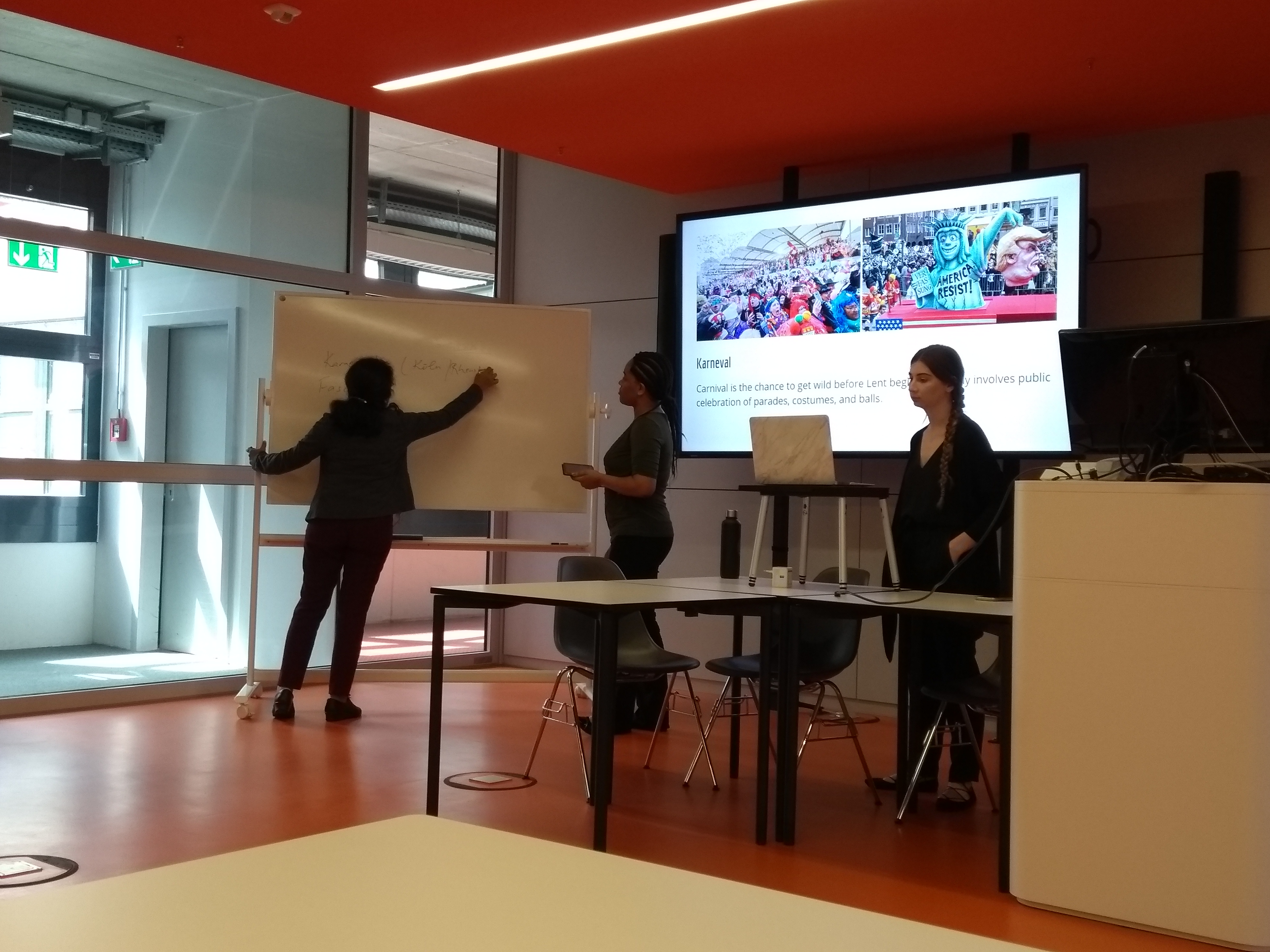Summer 2018 I was near the Bodensee to give two lectures at a Philosophy Summer Week. This year, May 2019, I returned to that beautiful region in central Europe again on a very different occasion – I was invited as keynote speaker at a bachelor’s students conference – a novelty to me! The title of the conference was Globalizing the Frankfurt School, and it was organized by professor Monika Kirloskar-Steinbach. She had been the ‘Halle Visiting Scholar’ at Oxford College, Emory University (USA), and brought her students to the University of Konstanz to share an intercultural experience of doing critical philosophy together with their German peers.
I loved the trip, this time nearing the Bodensee from the south, which allows one to pass through Switzerland, a country that always brings back feelings from the 1960s to me, when it shone like an example of how Europe could look once more after WW II damage would had been repaired. From Zürich Airport one takes the train, which gives better views of the country side, and also of the famous Swiss mountains (of which I could not get a good picture).


I had decided to take an article by Tommy J. Curry as the center of my lecture. An article which I had used in class beore, as it is so good for teaching purposes – because of the options it gives to go back and forth from lived reality to theory, use video and create discussion. It carries deeply philosophical concepts (such as the concept of ‘submergence’) and puts them to use to clarify superficial theorizing in cultural studies on black dance in the Americas. It shows how reflection on the specific dance called ‘Krumpin’ essentializes it as ‘naturally African’, without taking the specific historical situation into account which this dance addresses. On the side it critizes representations (in the documentary film “Rize”) of black dance as part of a general ‘racist othering’ (these words are not in the article, they are mine here) of African Americans. But its main point is to articulate a politics of social pessimism as a form of self-care of the group for which Krumpin’ was developed.
The article is called I’m too Real for Yah, and was published in the Radical Philosophy Review in 2009 by Tommy J. Curry. Curry, whose book I reviewed here some time ago, recently transferred from the USA to Scotland. I thought the article fit the theme of that conference – though it contains not a single reference to Adorno, Horkheimer, or other great names of the original Frankfurt School thinkers. I remember now one of the worst annual interviews I had in my career, in which I told the head of our section I was returning to the Frankfurt School type of theory, and he scolded me for working on dead historical stuff. I was too baffled to reply, but if he had just kindly asked me what interested me in this, I would have explained that I want to revive some of its inspiration in present day philosophy on present day issues. The inspiration of philosophy as political intervention. This is what the paper on Krumpin’ does, and how I presented it to those German and American students, in that room in the grandiose library of the University of Konstanz. The students liked it too, and the very different background of the two groups of students made for a lively and also sometimes very personal discussion, in which boundaries were crossed and true learning experiences were had.
By the way – and to conclude: if you are interested in Campus architecture you should travel to this place – if only to experience the sublime 1970s mix of straight modernism and organic shapes, with a mensa that feels like a German Bierhalle and above all: spaces that really invite to create a reflective community – what a university should be. Just look at the pictures below. I really enjoyed being there. I benefitted from the atmosphere of critical reflection created by our host Monika Kirloskar, which allowed us to do what is so important – to think in exchange with others.







 ough I was burying myself in the classical curriculum of my philosophy studies, she knew that I was really oriented toward the mystical. I protested the word, as ‘becoming one with the One’ did not attract me – a fan of negative dialectics and critical thinking. In the end, of course, we had more in common than we both would admit, and we entered into a fundamental conversation that lasted for 16 years. Then my friend (who had changed to religious studies in 1981, out of protest against what we now call the white canon in philosophy) at the moment she was about to start her PhD project on sufi mysticism in the middle ages, and already was making headway with learning Arabic and Persian, died.
ough I was burying myself in the classical curriculum of my philosophy studies, she knew that I was really oriented toward the mystical. I protested the word, as ‘becoming one with the One’ did not attract me – a fan of negative dialectics and critical thinking. In the end, of course, we had more in common than we both would admit, and we entered into a fundamental conversation that lasted for 16 years. Then my friend (who had changed to religious studies in 1981, out of protest against what we now call the white canon in philosophy) at the moment she was about to start her PhD project on sufi mysticism in the middle ages, and already was making headway with learning Arabic and Persian, died.